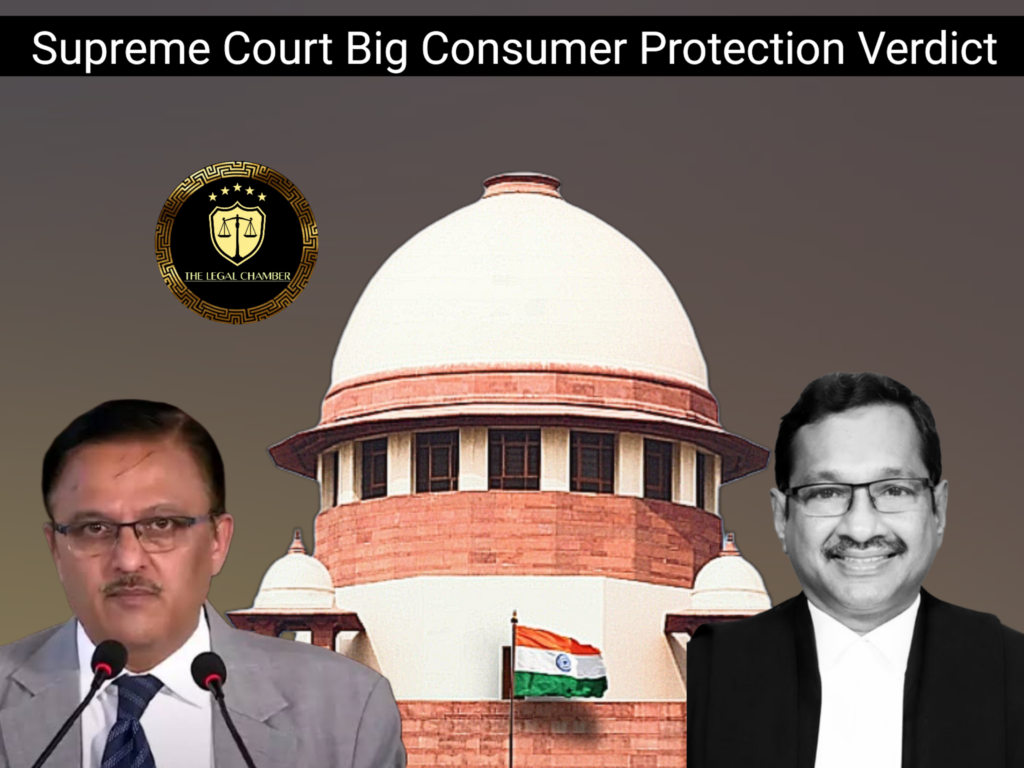
This Supreme Court judgment addresses the appointment process and tenure of members in State and District Consumer Commissions. It mandates judicial majority in selection committees and a five-year tenure, overturning previous rules. The Court also clarifies that written examinations are not required for judicial members, but are necessary for non-judicial members for both appointment and reappointment.
Facts Of The Case:
The genesis of this case lies in challenges to the Consumer Protection (Qualification for appointment, method of recruitment, procedure of appointment, term of office, resignation and removal of the President and members of the State Commission and District Commission) Rules, 2020. Initially, the Bombay High Court struck down certain rules concerning eligibility criteria (20 and 15 years experience for non-judicial members) and the uncanalised power of the Selection Committee. The Supreme Court, in Limaye-I, upheld these findings, exercising Article 142 to direct a written examination followed by a viva voce for appointments.
Subsequently, fresh writ petitions were filed in the Bombay High Court challenging Rule 6(1) (composition of Selection Committee, citing lack of judicial dominance) and Rule 10(2) (four-year tenure for members), along with the State of Maharashtra’s advertisement and appointments made after the High Court reserved judgment. The High Court declared Rule 6(1) and Rule 10(2) unconstitutional and quashed relevant notifications and part of the advertisement. Separately, the Telangana High Court set aside appointments for District Commission members based on non-adherence to Limaye-I‘s directions. This Supreme Court judgment consolidates appeals against these High Court decisions and review petitions seeking clarification of Limaye-I, particularly regarding the written examination for judicial members.
Procedural History:
The procedural history of this case began with challenges to the Consumer Protection (Qualification for appointment, method of recruitment, procedure of appointment, term of office, resignation and removal of the President and members of the State Commission and District Commission) Rules, 2020. Initially, the Bombay High Court invalidated specific rules related to eligibility criteria for non-judicial members and the unfettered discretion of the Selection Committee. Subsequently, the Supreme Court, in Limaye-I, affirmed these High Court findings and, utilizing its powers under Article 142 of the Constitution, directed the implementation of a selection process that included a written examination followed by a viva voce for appointments. Following Limaye-I, new writ petitions were filed in the Bombay High Court, contesting Rule 6(1) regarding the composition of the Selection Committee (alleging a lack of judicial dominance) and Rule 10(2) concerning a four-year tenure for members. These petitions also challenged the State of Maharashtra’s advertisement and appointments made after the High Court had reserved judgment. The Bombay High Court then declared Rule 6(1) and Rule 10(2) unconstitutional and consequently invalidated the related notifications and portions of the advertisement. Concurrently, the Telangana High Court nullified appointments for District Commission members, citing their non-compliance with the directions set forth in Limaye-I. This Supreme Court judgment serves to consolidate the appeals against these High Court decisions and addresses review petitions that sought clarification on Limaye-I, particularly concerning the requirement for a written examination for judicial members
READ ALSO:Supreme Court Split Verdict: When Can Schools Be Held Accountable Under Article 226?
Court Observation:
The Bombay High Court initially observed certain rules of the 2020 Rules to be invalid, specifically regarding eligibility criteria for non-judicial members and the unbridled discretion granted to the Selection Committee. Following this, the Supreme Court in Limaye-I concurred with these observations, emphasizing the need for a written examination and viva voce for appointments. Subsequently, the Bombay High Court further observed and declared Rule 6(1), pertaining to the composition of the Selection Committee (due to perceived lack of judicial dominance), and Rule 10(2), concerning the four-year tenure for members, as unconstitutional. This led to the invalidation of associated notifications and portions of the advertisement. Concurrently, the Telangana High Court observed non-compliance with the directives established in Limaye-I, which resulted in the annulment of appointments for District Commission members. The overarching Supreme Court judgment, in consolidating these appeals, has made observations and clarified the requirements for a written examination, particularly for judicial members.
Final Decision & Judgement:
The Supreme Court, in its final decision, clarified that the requirement of a written examination followed by a viva voce, as directed in Limaye-I, does not apply to the selection of Presidents of State Commissions, Judicial Members of State Commissions, and Presidents of District Commissions (under Rules 3(1), 3(2)(a), and 4(1) of the 2020 Rules, respectively), allowing relevant review petitions. It upheld the Bombay High Court’s decision to strike down Rule 6(1) (composition of the Selection Committee due to executive dominance) and Rule 10(2) (four-year tenure), mandating a five-year term and a selection committee with a judicial majority. The Court validated Paper II of the Maharashtra advertisement and upheld the appointments made on October 5, 2023, deeming the appointees proper parties and their selection bona fide. It set aside the suggestion to revive Rule 8(18) of the 2019 Rules for reappointments, stating that reappointments will be considered under new rules. The Court affirmed the Bombay High Court’s decision regarding judicial member appointments without a written exam and overturned the Telangana High Court’s order nullifying appointments that were completed before Limaye-I, emphasizing its prospective application. Finally, it directed the Union of India to submit an affidavit on the feasibility of a permanent adjudicatory forum, notify new rules within four months incorporating the five-year tenure and judicial majority in selection, and for states to complete recruitment within four months of the new rules’ notification.
Case Details:
Case Title: Ganesh Kumar Rajeshwarrao Selukar and Ors. Versus Mahendra Bhaskar Limaye and Ors. Citation: 2025 INSC 752 Civil Appeal No.: Civil Appeal No. 9982 of 2024 & Connected Matters Date Of Judgement: May 21, 2025 Judges/Justice Name: Justice Abhay S. Oka and Justice M. M. Sundresh
Download The Judgement Here